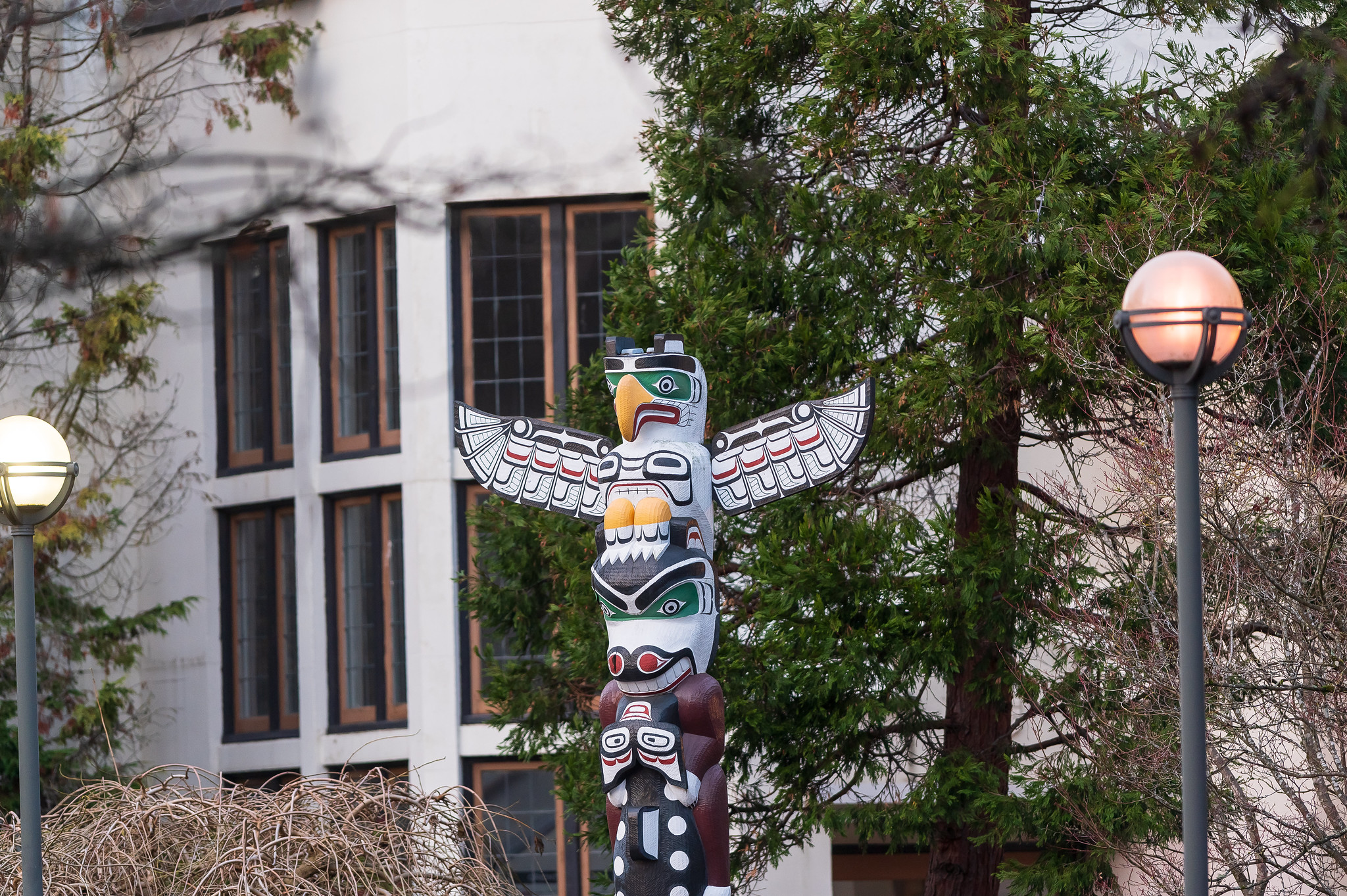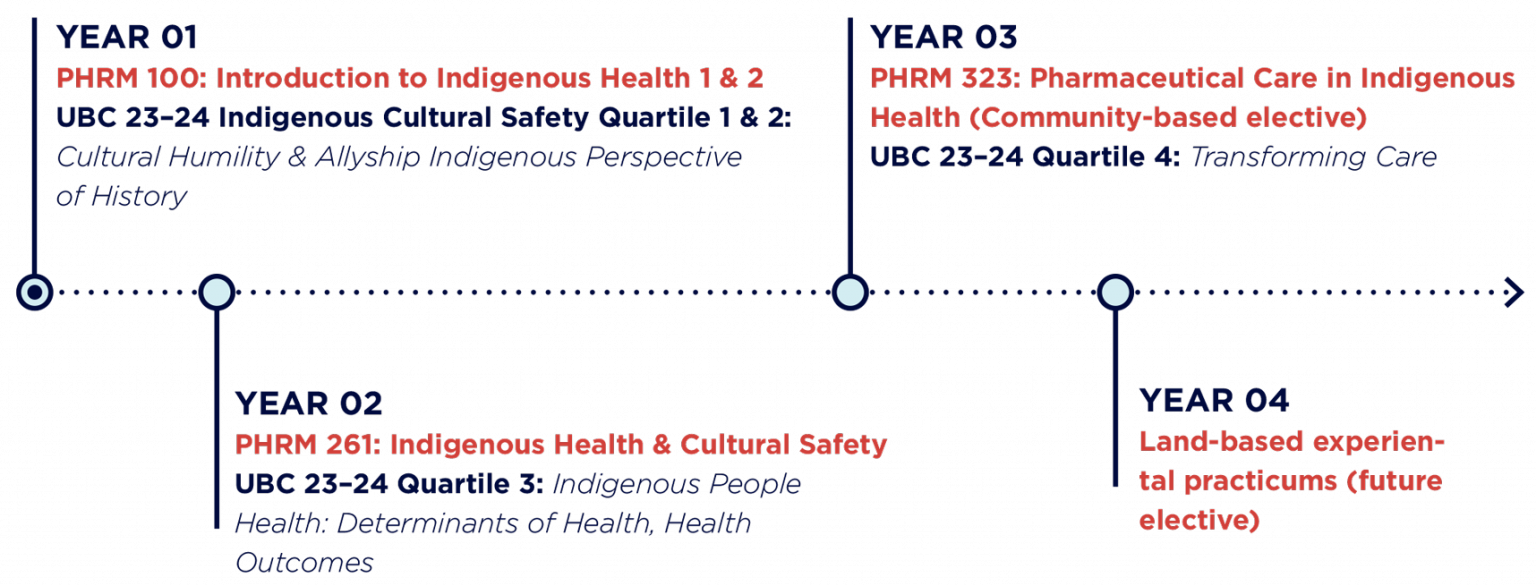
Curriculum
Focusing on the core curricular pillars: colonialism, power and privilege, cultural safety and humility, health and healing and ethical engagement.
Scaffolded Curricula

Curricular Pillars

Courses
PHRM 261 – Indigenous Health and Cultural Safety
Canada’s first mandatory course in a pharmacy program.
This course was created in response to the UBC Indigenous strategic plan 2020 commitment to Indigenous Engagement and the UBC Pharmaceutical Sciences 2017-2022 strategic plan to increase the scope of education and professional development in Indigenous health.
Course topics include impacts of colonialism on health; identity, power and positionality; racism, social neutrality and empowerment; implicit bias; Indigenous and Western knowledge systems; traditional medicines; Indigenous governance; principles of ownership, control, access and possession; First Nations health benefits; and trauma-informed care.
We gratefully acknowledge the financial support for this project provided by UBC Vancouver students via the Teaching and Learning Enhancement Fund.
Assessment Methods
Classes will be comprised of lectures and group discussions. Evaluation will be varied and will follow the outline below.
- Book Club
- Class Participation
- Visual Arts Reflection
- Quizzes
PHRM 323 – Pharmaceutical Care in Indigenous Health
Canada’s first community-based pharmacy elective course on Indigenous Health and Cultural Safety.
The elective course was created in response to the UBC strategic plan 2020 commitment to Indigenous Engagement and the UBC Pharmaceutical Sciences 2017-2022 Catalyst for Change strategic plan to increase the scope of education and professional development to include Indigenous health. Consistent with strategic plans, the course addresses key goals of developing a curriculum that is sensitive and relevant to the health of Indigenous communities and providing opportunities to develop community relations with Indigenous organizations, health care practitioners, and patients.
This course builds off of PHRM 261 and dives deeper into Indigenous health in Canada and the role a pharmacist can have in collaborating with other health professionals and Indigenous communities in providing care and healing. The course focuses on a single community-based project, that takes a current community-identified need and brings students in to be part of the solution.
Library Tutorials
Partnered with Xwi7xwa Library and developed a six-video series on community research protocols, Indigenous research methodologies and data sovereignty from an Indigenous perspective.
We gratefully acknowledge the financial support for this project provided by UBC Vancouver students via the Teaching and Learning Enhancement Fund.
Assessment Methods
Classes will be comprised of lectures, group discussions, project work, and video-conferencing with community-partners. Evaluation will be varied and will follow the outline below.
- Book Club
- Journal Club
- Class Participation
- Visual Arts Reflection
- Cultural Immersion Activities
- Quizzes
- Final Project
PHRM 300 Directed Studies – Place-Based Learning in the E2P PharmD Program
The first place-based learning opportunity to be offered to PharmD students at UBC.
This new pilot Summer directed studies course is offered to students finishing their second year in the E2P PharmD program. It aims to offer students a more hands-on and in-depth learning experience into Indigenous knowledge systems and cultural safety.
The hands-on learning approach of the course fosters connections to land and community as foundational aspects of health in a way that recognizes and respects privileged knowledge. This approach emphasizes holistic well-being, integrating cultural teachings from Knowledge Keepers in traditional medicine.
Assessment Methods
Students will engage with in-person learning opportunities led by traditional Knowledge Keepers, online learning modules, written reflections, and a written research component. Evaluation will be varied and will follow the outline below.
- Report/portfolio
- Oral presentation
- Reflection on learning
More information is to be available upon further course development.